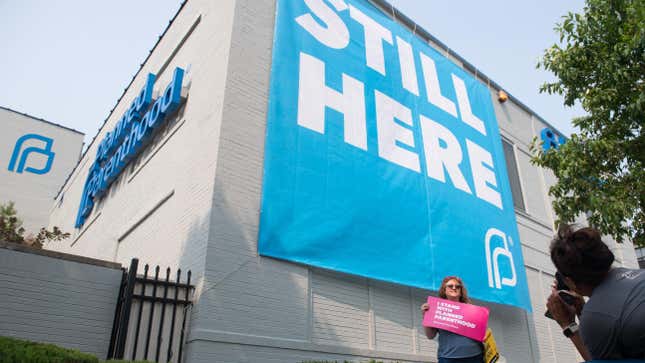Planned Parenthood Saw 700% Spike in Abortion Patients Traveling to Illinois Post-Roe
The chief medical director of the region's Planned Parenthood organization told Jezebel most traveling patients are coming from the South.
AbortionPolitics

After the Supreme Court overturned Roe v. Wade, Dr. Colleen McNicholas, chief medical officer of Reproductive Health Services of Planned Parenthood of the St. Louis Region, worked with a patient who drove 13 hours to her clinic in Illinois from the southernmost part of Texas for a medication abortion. Upon receiving the abortion pills, the patient declined help paying for lodging and instead immediately drove 13 hours back, straight to work. “She said, ‘I have a life to get back to.’ It’s part of how we continue to hear from folks about how difficult it is, even when we’ve created systems that can support them,” McNicholas told Jezebel.
Her organization offers a regional logistics center to help traveling abortion patients navigate the labyrinth of abortion laws and geographic barriers—and also get the financial help they need—to access care. But the barriers are constant and ever-evolving. “We’ll hear from so many prospective patients who have never been to an airport, who we have to walk through how to get an ID, how layovers work,” McNicholas said.
As we mark the first anniversary without Roe, even states where abortion has remained legal have been gutted by the decision, inundated with out-of-state patients seeking abortion care due to bans in their states. In Illinois, a rare abortion rights haven in the Midwest, this reality has been especially stark, spreading abortion providers in the state increasingly thin and taking a toll on patients, too.
-

-

-

-

-

-

-

-

-

-

-

-

-

-

-

-

-

-

-

-

-

-

-

-

-

-

-

-

-

-

-

-

-

-

-

-

-

-

-

-








































